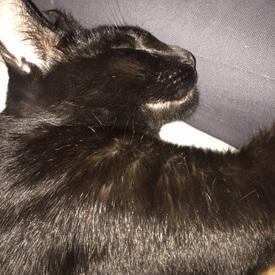3500 calorie deficit is a myth?

debsdoingthis
Posts: 454 Member
Hi-jacked from another thread. A member told some one looking for weight loss advice that:
You don't need to be burn 3500 calories for one pound. That's a myth.
I didn't want to hijack the OP's thread, but question remains, how is this a myth? What haven't I learned or should be un-learning?
You don't need to be burn 3500 calories for one pound. That's a myth.
I didn't want to hijack the OP's thread, but question remains, how is this a myth? What haven't I learned or should be un-learning?
0
Replies
-
My food log, scale, and Excel say it's pretty dang close.0
-
This content has been removed.
-
I didn't see the other thread or the context...so I'm guessing.
"One Pound" (as in one pound on the scale) can fluctuate due to any number of things - water/hydration, excrement in the bowels, bones, fat, muscle, etc.
A 3500 calorie deficit will lead to a pound of FAT loss over the long term. But the scale may move up or down by a pound due to fluctuations in any of the other above as well.0 -
That's not really a myth, but if you lose muscle instead of fat, it would take less than 3500 calories to lose a pound of weight.0
-
I don't know what other thread you're talking about, but the thing that came to mind was maybe the poster meant you didn't necessarily have to BURN 3500 cals. because you could also eat 3500 cals. less. Just a thought, though.0
-
This content has been removed.
-
I would LOVE to know their reasoning behind calling it a myth.0
-
I agree with the above 3500 cals is a pound of fat, but no one is losing only fat. So it usually takes a lower deficit to lose 1 pound.0
-
-
I would assume they mean burn via exercise. That would indeed be a myth. It would make sense for someone to say that on here since we see quite a few posts on here of people thinking they need to burn 500 calories a day from cardio to lose a pound a week.0
-
http://community.myfitnesspal.com/en/discussion/10186266/im-determined-to-lose-15-20lbs-in-30-days#latest
By Kyleh206, if anyone's still curious.
Note: And I appreciate OP's efforts towards anonymity, but I was really curious about this too, and I think people require context to give informed responses.0 -
TimothyFish wrote: »That's not really a myth, but if you lose muscle instead of fat, it would take less than 3500 calories to lose a pound of weight.discretekim wrote: »I agree with the above 3500 cals is a pound of fat, but no one is losing only fat. So it usually takes a lower deficit to lose 1 pound.
Yep. 3500 is based on fat loss. It's also rounded and easily divisible by 7 so you can split it up over a week so that makes it nice to use.0 -
The OP was advised to create a 3500 cal deficit, that was followed by the bolded comment regarding the myth. I found the statement confusing. I'm sure others would as well.0
-
This content has been removed.
-
Weight loss isn't 100% fat, adipose tissue isn't 100% fat either, 9 cal/g is probably rounded up anyway, etc.0
-
So 3500 calories equals a pound then? OK, there are 9 calories per gram of fat. There are 453.592g in a pound. 453.592x9=4082.328. Explanations? Go...
EDIT: Heat lost during the conversion back and forth causes the difference?
So how does this work, when say, you have two grilled sausages that come out at 277 calories, but their fat content is 20.9g? I've just looked at the closest food packet to me, and that was it.
20.9 x 9 = 188.1, not 277.
I am confused. More so than usual. Not going to lie, maths is most definitely my weakest subject!0 -
We lose hydrated fat when we lose weight so we don't actually lose a whole pound of fat for each pound lost and the general rule is 3500 calories per pound. As for how it's burned I don't think it really matters whether you do it with exercise or eating less - you're still creating a deficit and that's all that really matters.0
-
NoIdea101NoIdea wrote: »So 3500 calories equals a pound then? OK, there are 9 calories per gram of fat. There are 453.592g in a pound. 453.592x9=4082.328. Explanations? Go...
EDIT: Heat lost during the conversion back and forth causes the difference?
So how does this work, when say, you have two grilled sausages that come out at 277 calories, but their fat content is 20.9g? I've just looked at the closest food packet to me, and that was it.
20.9 x 9 = 188.1, not 277.
I am confused. More so than usual. Not going to lie, maths is most definitely my weakest subject!
you forgot the protein, and perhaps the carbs if present.
0 -
That poster is right for if you want to lose more muscle instead of fat. If your muscle loss ratio increases it will take less than 3500 calories to lose a pound on the scale.0
-
NoIdea101NoIdea wrote: »So 3500 calories equals a pound then? OK, there are 9 calories per gram of fat. There are 453.592g in a pound. 453.592x9=4082.328. Explanations? Go...
EDIT: Heat lost during the conversion back and forth causes the difference?
So how does this work, when say, you have two grilled sausages that come out at 277 calories, but their fat content is 20.9g? I've just looked at the closest food packet to me, and that was it.
20.9 x 9 = 188.1, not 277.
I am confused. More so than usual. Not going to lie, maths is most definitely my weakest subject!
Sausages aren't pure fat? Your math isn't accounting for the protein, carbs, etc. that make up the rest of that sausage.0 -
This content has been removed.
-
If by "myth" you mean "approximation, on average" ... then sure. It's a "myth".
<boggle>0 -
NoIdea101NoIdea wrote: »So 3500 calories equals a pound then? OK, there are 9 calories per gram of fat. There are 453.592g in a pound. 453.592x9=4082.328. Explanations? Go...
EDIT: Heat lost during the conversion back and forth causes the difference?
So how does this work, when say, you have two grilled sausages that come out at 277 calories, but their fat content is 20.9g? I've just looked at the closest food packet to me, and that was it.
20.9 x 9 = 188.1, not 277.
I am confused. More so than usual. Not going to lie, maths is most definitely my weakest subject!
You forgot the other 50 ingredients, which usually include meat, seasonings, and sometimes fillers.
0 -
Katiebear_81 wrote: »NoIdea101NoIdea wrote: »So 3500 calories equals a pound then? OK, there are 9 calories per gram of fat. There are 453.592g in a pound. 453.592x9=4082.328. Explanations? Go...
EDIT: Heat lost during the conversion back and forth causes the difference?
So how does this work, when say, you have two grilled sausages that come out at 277 calories, but their fat content is 20.9g? I've just looked at the closest food packet to me, and that was it.
20.9 x 9 = 188.1, not 277.
I am confused. More so than usual. Not going to lie, maths is most definitely my weakest subject!
Sausages aren't pure fat? Your math isn't accounting for the protein, carbs, etc. that make up the rest of that sausage.
Maybe your sausage isn't...
Did someone say "sausage" ?
0 -
3500 lbs is an approximation. It is based on the idea that a pound of fat would be about 454 grams, with 85% being fat and 15% being water or other. Take 454 grams * .85 * 9 calories per gram of fat, and you a bit less than 3500 calories.0
-
It's not a myth. It's science. There are 3500 calories in a pound of fat. Actually, it's more like 3,555, but most people remember round numbers better, and it makes for a better sales pitch.
Weight loss is more complex, as others have stated; you lose more than fat when eating at a calorie deficit. You will lose muscle and connective tissue (although in some instances, with the right diet and exercise, folks can gain muscle; but usually newbie lifters in the beginning of a recomp plan; details).
But the basic science is true.
People want to argue this stuff, argue the details, but they miss the point. Weight loss and fat loss are difficult tasks, and simplicity makes it more likely for people to succeed. The less complex a diet plan is, the more likely people will stick to it. Research has shown this.
3,500 calories to burn a pound of weight; it's not exact, but it's close enough to work. Don't get caught in the details.0
This discussion has been closed.
Categories
- All Categories
- 1.4M Health, Wellness and Goals
- 398.2K Introduce Yourself
- 44.7K Getting Started
- 261K Health and Weight Loss
- 176.4K Food and Nutrition
- 47.7K Recipes
- 233K Fitness and Exercise
- 462 Sleep, Mindfulness and Overall Wellness
- 6.5K Goal: Maintaining Weight
- 8.7K Goal: Gaining Weight and Body Building
- 153.5K Motivation and Support
- 8.4K Challenges
- 1.4K Debate Club
- 96.5K Chit-Chat
- 2.6K Fun and Games
- 4.8K MyFitnessPal Information
- 12 News and Announcements
- 21 MyFitnessPal Academy
- 1.5K Feature Suggestions and Ideas
- 3.2K MyFitnessPal Tech Support Questions

















